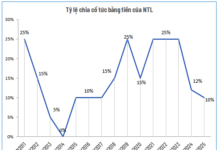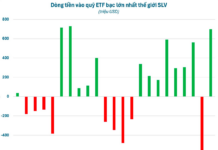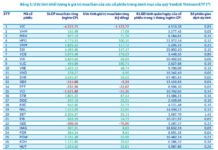The Ministry of Industry and Trade has submitted a draft proposal to the Prime Minister to amend Decision 24 of 2017 on the mechanism for adjusting the average electricity retail price. The draft proposes reducing the adjustment period from 6 months to 3 months. This regulation aims to make the electricity price management more flexible and efficient in line with the macroeconomic situation in each stage.

EVN is authorized to adjust the electricity price. Photo: Hoang Giam.
When the average electricity selling price decreases by more than 1% compared to the current average selling price, the electricity price can be correspondingly adjusted down. On the other hand, if the average electricity price increases by more than 3% compared to the current price, it can be adjusted upward.
Regarding the authority to adjust electricity prices, Vietnam Electricity Group (EVN) has the autonomy to reduce or increase prices by less than 5%; the Ministry of Industry and Trade has the authority to approve EVN’s decision to adjust prices by 5% to less than 10%; and the Prime Minister’s opinion will be sought for EVN’s decision to adjust prices by 10% or more, or if it affects the macroeconomy.
This is a new point compared to before when Decision 24 only allowed EVN to increase prices by 3% to 5%. Other price increase levels were decided and adjusted by higher levels. However, in this mechanism, after the higher levels (including the Ministry of Industry and Trade and the Prime Minister) decide on the price increase, the authority to adjust will be delegated to EVN for implementation.
The Ministry of Industry and Trade will play a leading role in price management, but the Ministry of Finance and the State Capital Management Committee also have roles in checking, reviewing the price plans proposed by EVN and in checking and adjusting prices. The Ministry of Industry and Trade will consolidate opinions to report to the Prime Minister.
In the draft to amend Decision 24 of 2017, the Ministry of Industry and Trade proposes not to specify the determination of benchmark profits in certain costs included in the formula for calculating the average electricity retail price of the old decision.
The Ministry of Industry and Trade also proposes: “The total of other costs not included in the electricity price, which are costs allowed but not yet included in the retail electricity price, including the re-evaluated exchange rate difference that has not been allocated or calculated for the average retail electricity price of the year.” According to the Ministry of Industry and Trade, this is to ensure uniformity and avoid different interpretations.
The draft also states that, if necessary, the ministry will require EVN to hire independent consultants to review the electricity production and business cost reports of EVN and its subsidiaries.
By Luong Bang






































